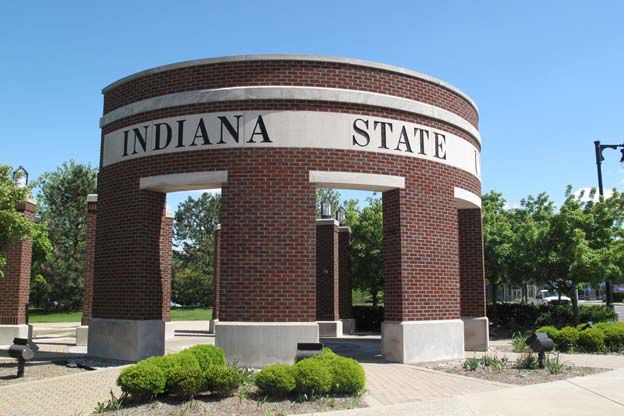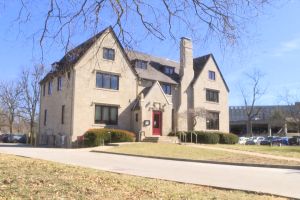
Indiana State University changed the name of its African American Culture Center.
More than 50 years after Black students fought for a space of their own on Indiana State University’s campus, officials are making changes to the Charles E. Brown African American Cultural Center.
The center’s mission will change, according to historian Crystal Reynolds. On Friday, the university removed “African American” from the name of the center and removed information on its mission statement, historical significance and goals, according to its website.
University officials confirmed the changes to Reynolds, she said, after she advocated for the protection of the center amid state and federal changes related to diversity, equity and inclusion.
Reynolds said ISU will broaden the center’s core mission to include students of all races.
University spokespeople did not respond to multiple requests for comment. At the time of publication, the center's website said it is “undergoing updates.”
“The fact that it's no longer the African American Culture Center changes the whole focus of the center,” Reynolds said. “The mission of the center was to teach about the African American culture to everyone, regardless of race, because Black history is everyone's history.”
Read more: Following government orders, IU eliminates DEI programs
ISU used to advertise the center as a space to engage students on issues related to race, ethnicity and cultural and political history.
“The Charles E. Brown African American Cultural Center is responsible for developing and providing opportunities for African American students to involve themselves in creating, innovating, designating, and deciding cultural programs relevant to them,” the center’s website said before the change. “It is further responsible for promoting positive identification, association, and relationship to African American historical and contemporary culture.”
Reynolds, a member of ISU’s Black alumni group Incorporated Gathering, wrote to President Mike Godard twice in the spring. On Tuesday, Reynolds said a university official confirmed and described the change.
Provost Chris Olsen told the Tribune-Star the changes are related to budget cuts and restructuring campus. Olsen and center director Sumalayo Leona Jackson did not respond to a request for comment.
The center was created after riots on ISU’s campus over the treatment of Black students and growing racial tensions in 1970. Black students included a place of their own on campus in their list of demands. By 1972, the university opened the Afro-American Cultural Center.
Samie Dixon, an ISU alumni who helped lead the establishment of the center, said students wanted representation and recognition on campus.
“Each of us has to have a foundation, and that's the foundation,” Dixon said.
The Board of Trustees later approved naming the center after Charles E. Brown, who served as director for more than 30 years.
“It's one of the oldest culture centers in the country,” Reynolds said.
Read more: As threats to DEI grow, students, community members fear what could be lost
Dixon said he believed the center was already open to all students, not just just Black students. He doesn’t have any concerns right now, but he and other alumni are interested in seeing how the changes manifest.
“I want to be truly involved throughout, and so if something comes up, I'll speak to it then,” Dixon said.
Reynolds, a three-time graduate of ISU, had advocated for protecting the center and its mission before the changes. She’s concerned the center will no longer offer education or preserve the history of the Black community at ISU, Vigo County and Indiana.
“The African American Culture Center was an educational center,” Reynolds said. “It was a social center for Black students and anyone else who wanted to hang out. But it was also a museum of sorts, and it was a place to preserve the actual physical items of the African American experience.”
Reynolds said some universities are shying away from telling African American stories because of federal and state demands. She believes it’s now up to the community to continue educating on the Black American experience.
“We have to, once again, be the people that we are, and take responsibility for our history and sharing our history and preserving our history,” Reynolds said. “We do this because we love our country, we love our history, and we want to share it with everyone.”
Aubrey is our higher education reporter and a Report For America corps member. Contact her at aubmwrig@iu.edu or follow her on X @aubreymwright.











